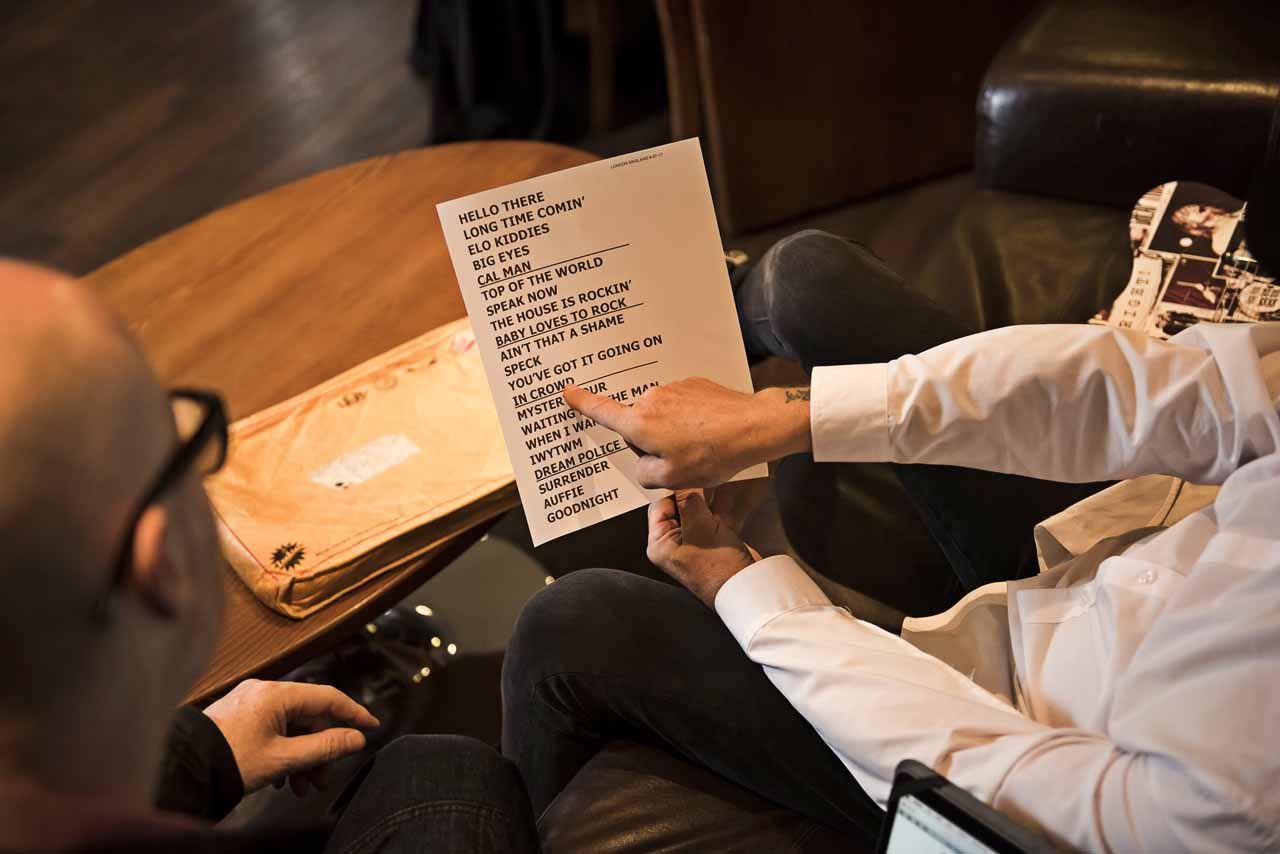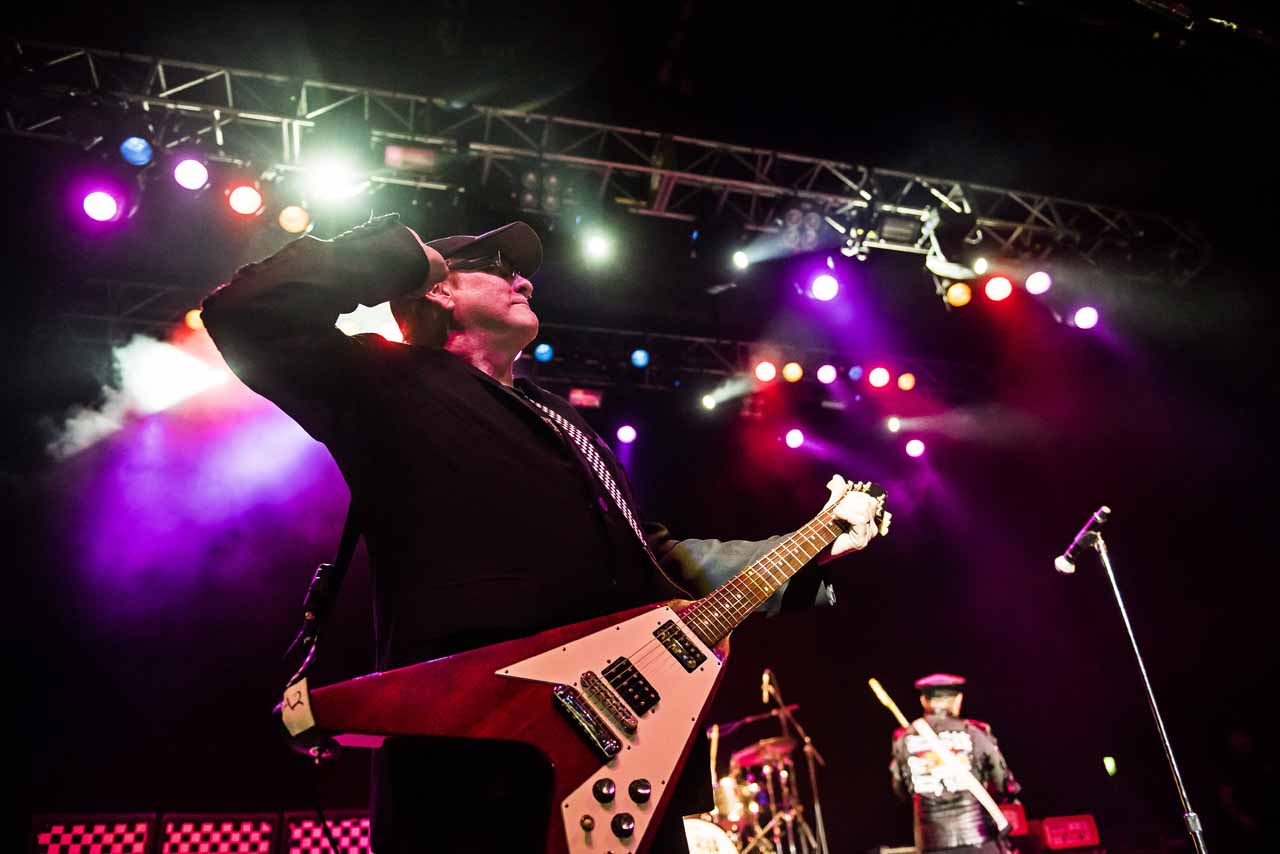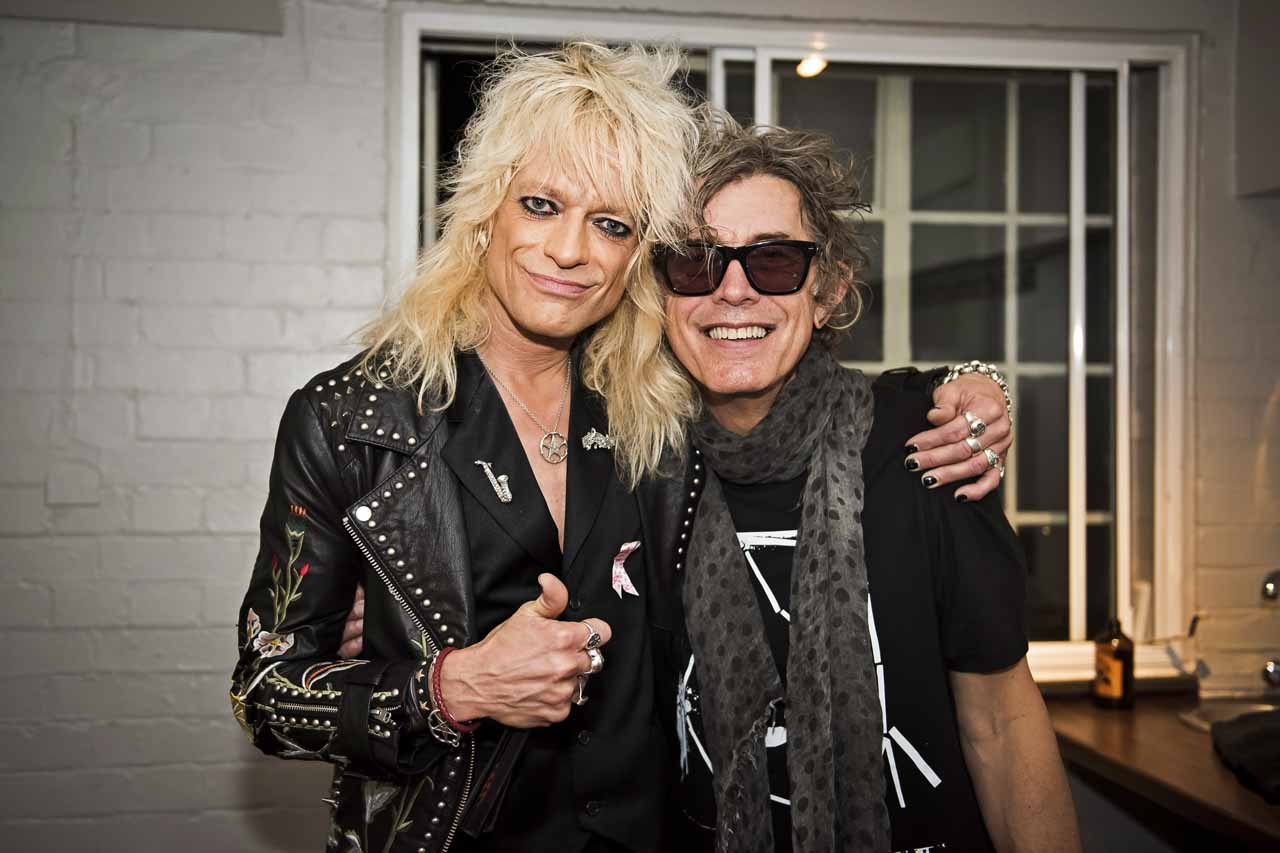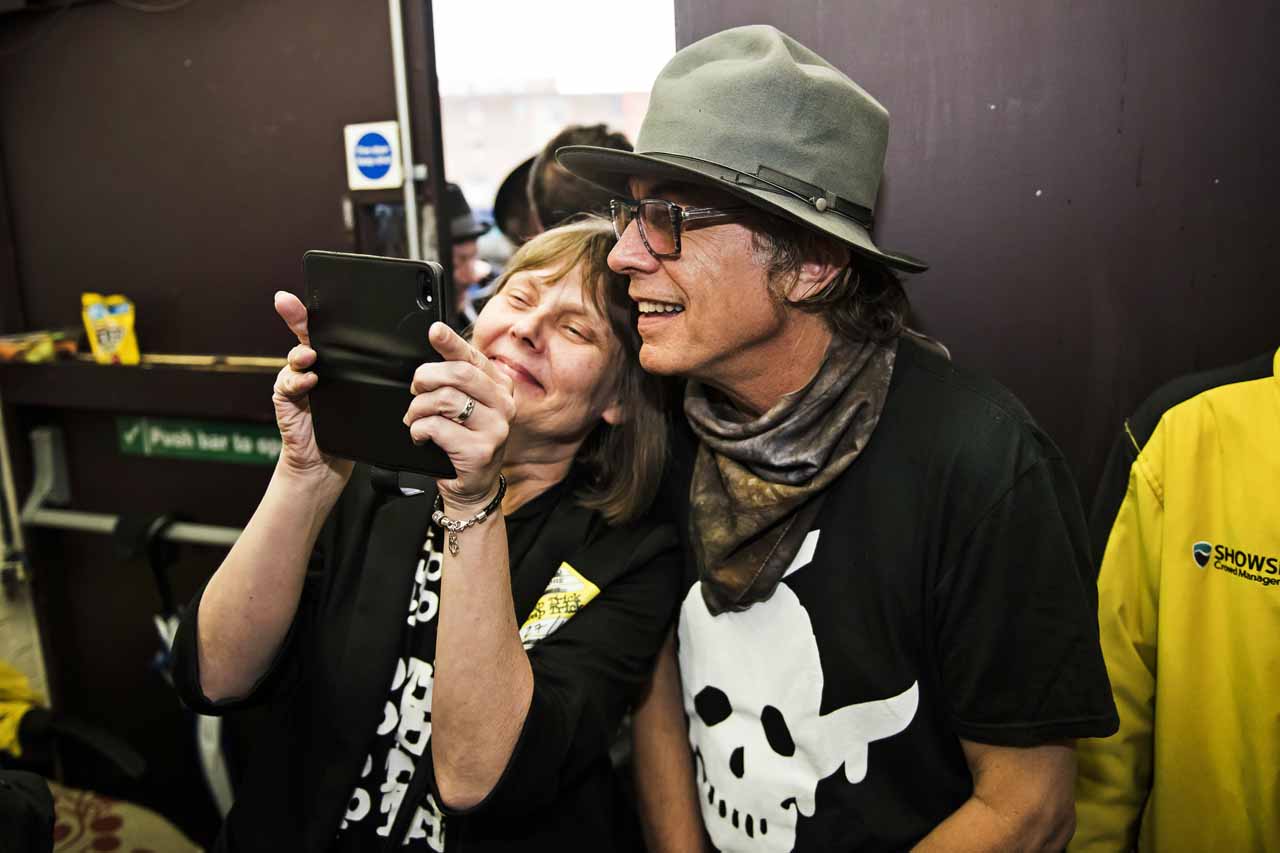There might be bigger rock bands, but few are as popular with other rock bands as Cheap Trick. Anthrax have covered them, Foo Fighters and Red Hot Chili Peppers have cited them as an influence, Alice Cooper hailed them “America’s house band”, and Nirvana took their blueprinted marriage of Beatles melody and Black Sabbath power to a whole new audience.
“Kurt Cobain said, ‘We’re like Cheap Trick, only our guitars are louder,’” says Rick Nielsen, two hours before show time in a dressing room upstairs at the O2 Forum. The guitarist and principal songwriter, at 68, is still the nabob of nerd. Dressed in a suit, Cheap Trick T-shirt and trademark baseball cap, his rubbery features contort into a grimace. “I took offence at that. My guitars are pretty fuckin’ loud.”
Too loud for John Lennon. Nielsen and former Trick drummer Bun E Carlos (it’s now Nielsen’s son Daxx on the skins) were summoned by the late Beatle to work on 1980’s Double Fantasy, but the results were deemed overly aggressive. Lennon feigned shock when Nielsen arrived at the studio – he claimed to have been expecting pop heart‑throb turned country artist Rick Nelson. “He looked at me and said: ‘Oh, it’s you!’” recalls Nielsen,
Cheap Trick’s own resident heart‑throb, frontman Robin Zander – he of the golden mane and honeyed rasp – joins in, recounting a conversation between Lennon and Double Fantasy/early Cheap Trick producer Jack Douglas.
“Jack said to him, ‘You should listen to this band – he sounds a lot like you.’ John said, ‘I have, and he sounds more like Paul McCartney.’”
The singer laughs. “I didn’t mind that at all.”
Former Beatles (even George Martin, who produced Cheap Trick’s 1980 album All Shook Up, described them as his “favourite band to work with who weren’t from Liverpool”), grunge and metal icons… Who hasn’t worshipped at the CT altar? The King himself was another convert.
“Elvis came in the studio, Ardent, when we were doing our first demo in Memphis,” recalls Zander, an arch Anglophile who idolised Steve Marriott and Roger Daltrey. “He was walking down the hallway and heard us performing. He said [does the Presley mumble]: ‘You guys have a really good band.’ It’s hard to top that.”
Who’s left? Classic Rock wonders if Donald Trump might be a secret fan? Thinking of Cheap Trick’s just-released eighteenth album and sensing a good promo opportunity, the ever-satirical Nielsen says: “I don’t care if you’re black, green, purple, yellow, white, Muslim, Jew or Catholic – buy the record.”
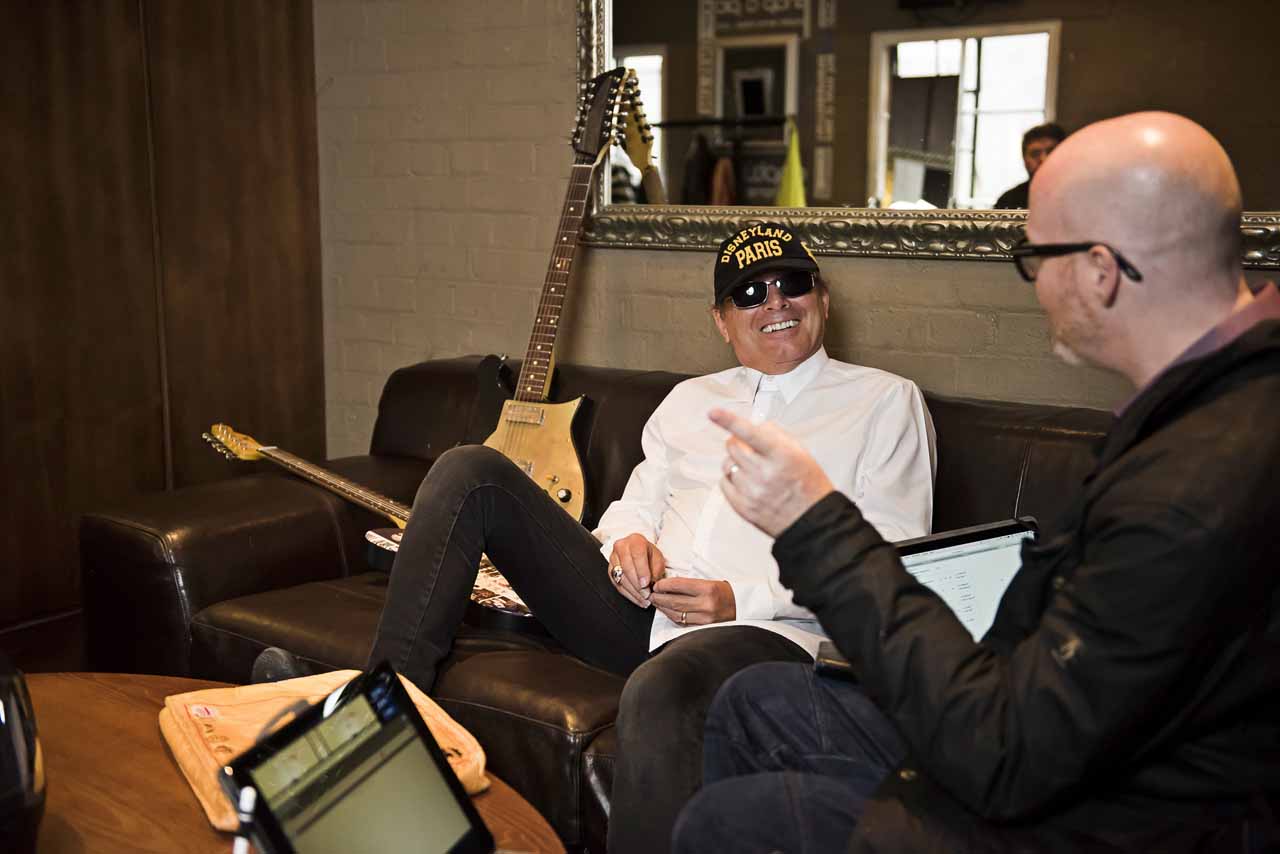
Forty years ago, in February 1977, Cheap Trick issued their first album, an incendiary, self-titled affair featuring such staples as Hot Love and He’s A Whore. Within six months came the candy-coated crunch of follow-up In Color, and a third, Heaven Tonight (featuring all-time classic Surrender), not long after. Meanwhile, the band were gigging every night. No wonder they were described by Kid Rock as the hardest-working band in rock’n’roll on their 2016 induction into Cleveland’s Hall Of Fame.
Today, with their second album in two years just out, and a Christmas LP (of Slade, Wizzard and Strokes covers, plus originals) recorded, it seems that nothing changes. “No, it’s not much different,” agrees Nielsen, scrunching up his face as he looks around him, “although the dressing rooms don’t smell quite as bad.”
He considers his band’s limited cult appeal, notwithstanding the Trickmania they enjoyed in Japan early on, and their late-80s success with US No.1 hit ballad The Flame. Then, ever self-deprecating, he declares: “I only ever had three wishes: I didn’t want to be the best-looking guy in the world, so I got that one. I didn’t want to be the richest guy in the world – I got that one. I’m still working on the third.”
Does life in Cheap Trick today differ from in ’77?
“Not much,” replies Zander, from behind shades and a baseball cap, joking that these days he takes the mirrors down so he doesn’t have to see, at 64, his ageing mug. “It’s still four guys making fools of themselves up on stage. But we have a good time doing it. Life is hell, but we do it well! Besides, I’m too dumb to quit.”
He remembers being met at Haneda Airport in Japan by thousands of screaming locals. “We thought, ‘God, the President must be here,’” he says. “When we got off the plane we discovered it was for us. We couldn’t show our faces anywhere. We had to travel round in mail trucks with the windows all taped over.”
There were dangerous moments: an overzealous woman jumped off the balcony onto the stage, and another stabbed Zander in the neck with scissors while trying to cut off a lock of his hair.
Cheap Trick’s shtick was their sex god/geek duality. Not that either half believed the hype. Later, Classic Rock will bump into their other sun-kissed adonis, Tom Petersson. His long brown mane may now be greying, but he’s still handsome, and eagerly looking for a loo. “I forgot to go before,” the bassist announces. “I’ve got to piss like a racehorse.”
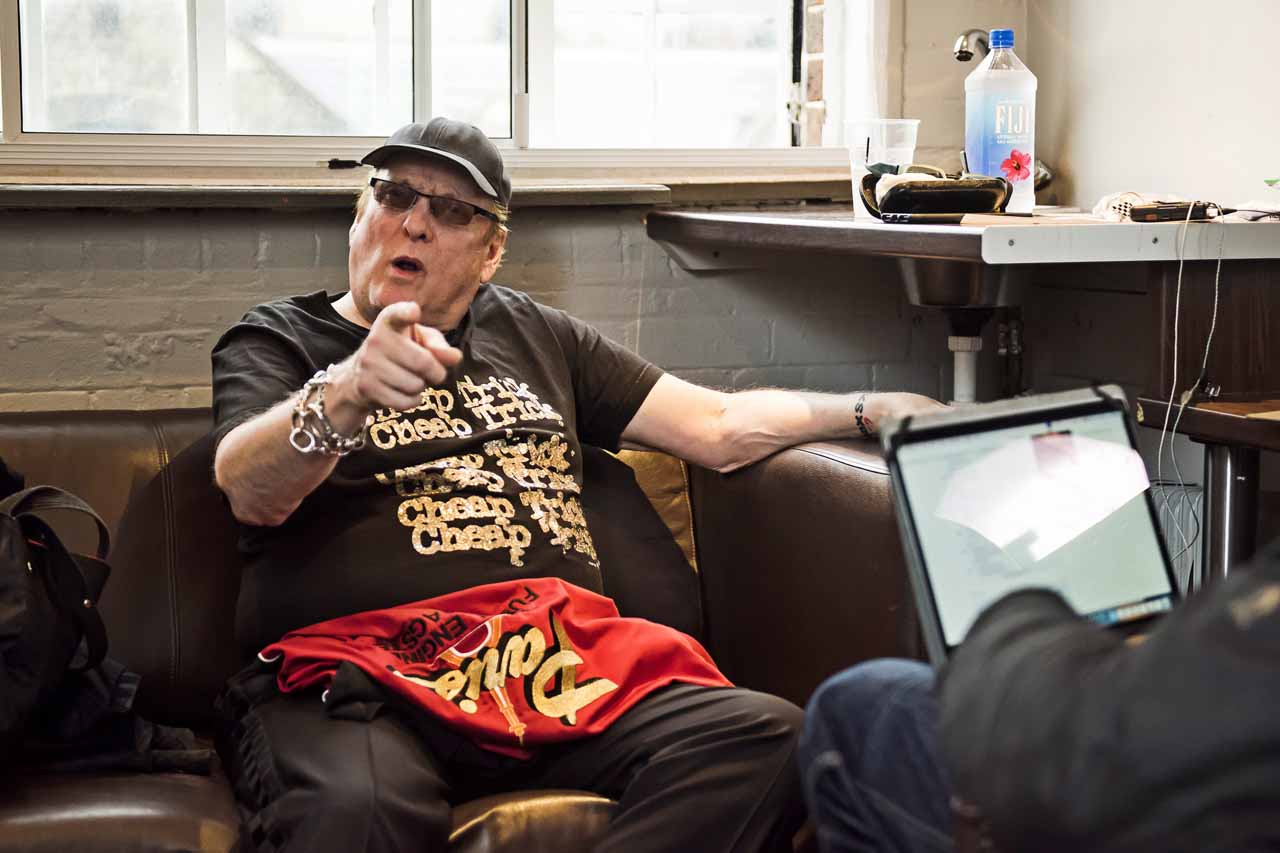
There was always a brash, comical quality to Cheap Trick: a sense of cartoon subterfuge not too distantly related to the warped minds behind The Simpsons and South Park.
“We’d do skits,” Zander remembers. “There was one that Rick had called The Carnival Game where a girl would come up onstage and sit on his face and he would guess her weight.”
Do their respective other halves know about this? “How,” asks Nielsen, with impressive timing, “do you think I met my wife?”
He introduces us to the long-suffering Mrs Nielsen, a glamorous lady to whom he’s been married for 46 years. Their honeymoon was in London, where they saw the band Navy Blue just days before they morphed into Jethro Tull, also an early incarnation of Yes. Then he, Zander and Petersson do a meet-and-greet, signing posters and posing for selfies. Nielsen will later reveal that he and his wife have both been recipients of the wrong kind of attention from hard-core Trick-ites. “I’ve had people come to my house and threaten me, threaten my wife, my dogs, threaten to set my house on fire, saying there’s a bomb in my car,” he confides.
Nielsen groans when told it was time to meet his public. He acknowledges the quandary: “If you’re nice to people, they won’t leave you alone, and if you’re mean to them they think you’re an asshole. So you can’t win. So I treat everybody like shit.”
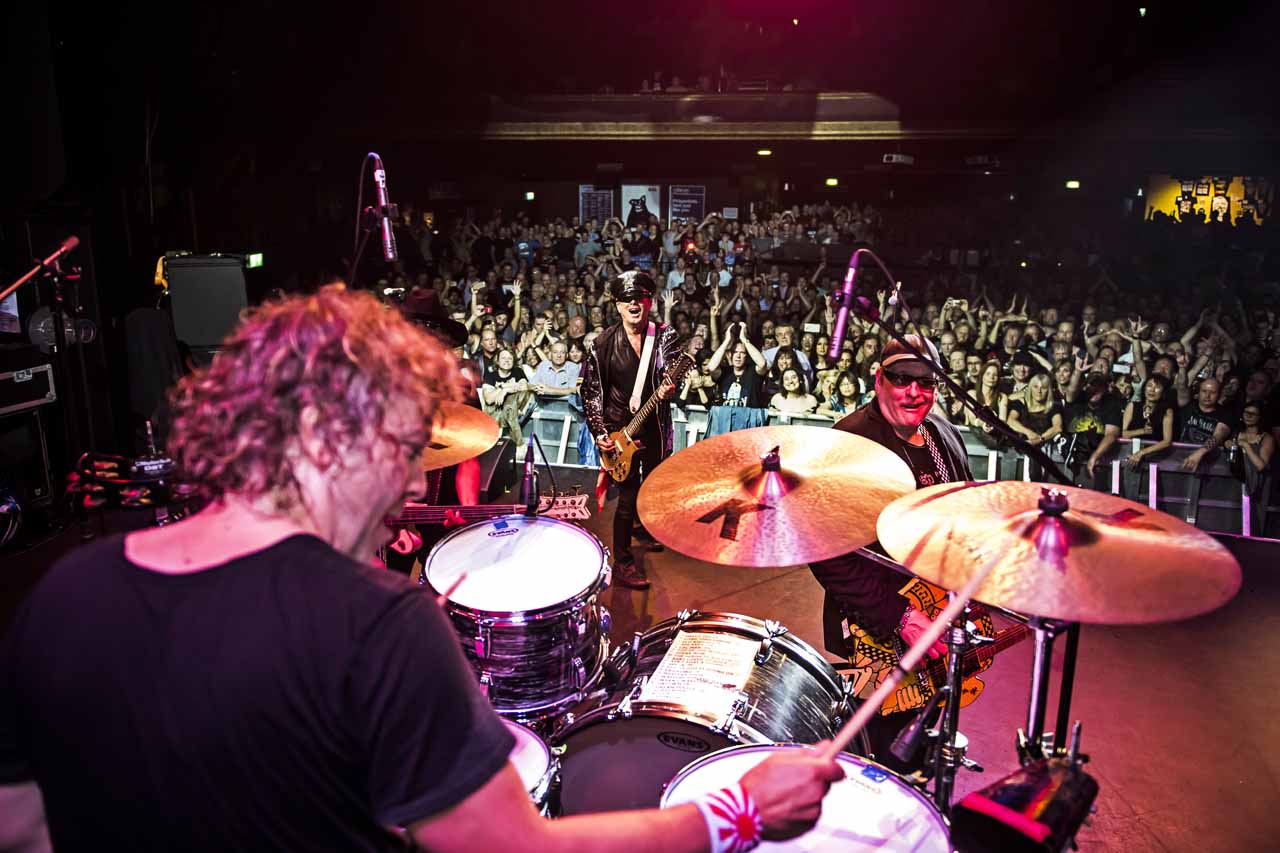
He doesn’t, of course. He accommodates all comers with good humour. Is it like having to turn it on?
“In a way. Like, ‘Hey, Rick, do something funny!’”
Does he struggle to keep up the persona?
“No,” he reasons, “because that’s what I am. I was the class clown.”
He tells a story from seventh grade when he berated his music teacher and got kicked out of the school band. You wonder a little if Cheap Trick is the revenge of Rick Nielsen? Are the songs an expression of his twisted psyche?
“No, I just didn’t want to sing about love and sex – although I did like that stuff too. I wrote about what I saw in the world. Not my world, our world,” he says of his songs about serial killers, paedophiles and suicide.
“Look,” he says, “I was never going to be the pretty boy, I was never going to be Jimmy Page or Jeff Beck. But I was happy being myself.” He pauses. “Although I wouldn’t want to be around me twenty-four hours a day.”
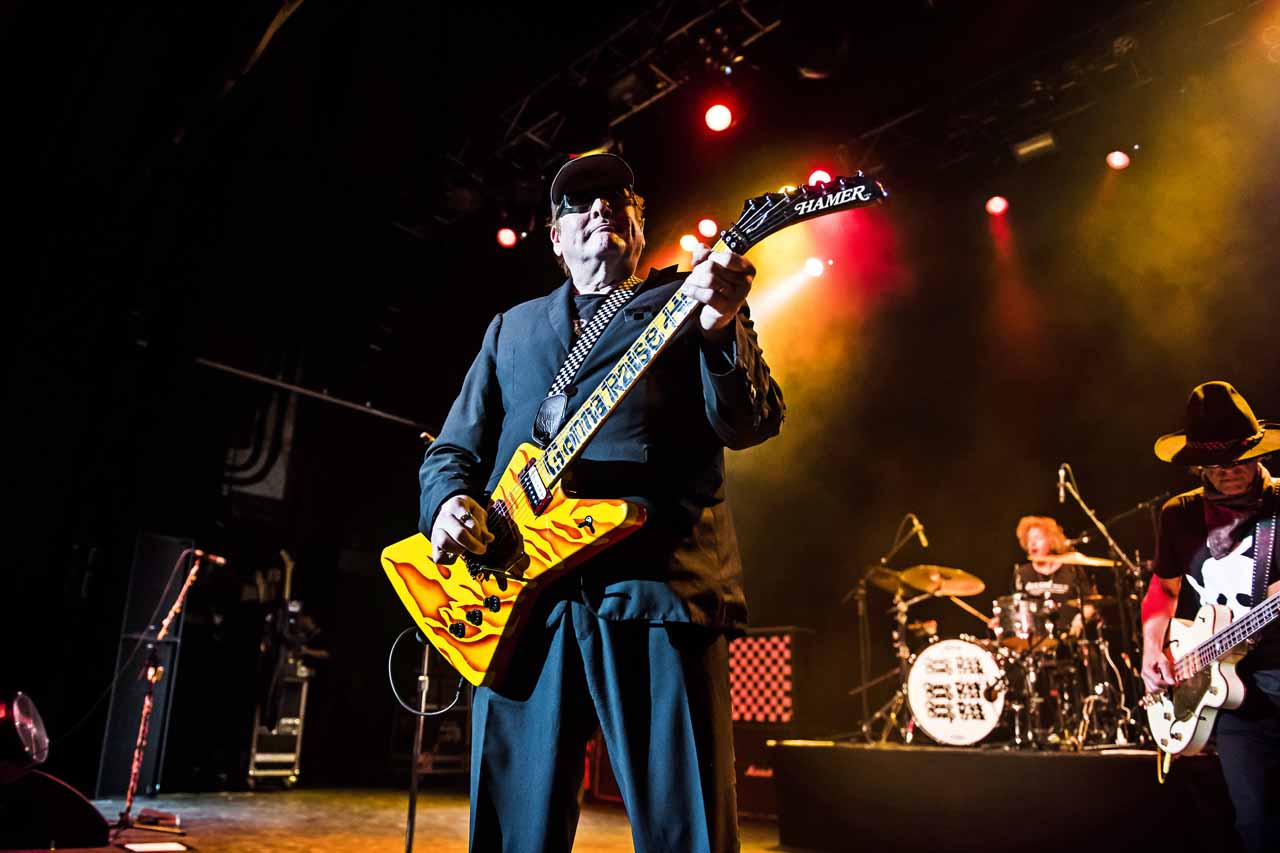
The audience seem pleased to see him following an introduction over the PA that goes, “Ladies and gentlemen, the best fucking rock band you’ve ever seen: Cheap Trick!”
For a group all in black, they create a polished, polychrome metal. They open with a ferocious Hello There, the magnificently leather-clad Zander in fine vocal fettle, Nielsen mugging for the cameras, Petersson in a wide-brimmed hat stage-right, hunched over his instrument, all the better to focus on those intricate bass lines.
There are songs from all stages of their 40-year recording history, up to and including 2017’s We’re All Alright!. During ELO Kiddies, Nielsen flings plectrums, from a seemingly endless supply, into the crowd. Big Eyes is hard and heavy, while a version of The Move’s California Man is cause for some rare soloing from Nielsen, who has made a career out of brutal concision.
If there are any complaints, it’s the surfeit of covers: Dobie Gray’s The In Crowd, The Beatles’ Magical Mystery Tour, the Velvets’ Waiting For The Man, and Fats Domino’s Ain’t That A Shame. Sure, they’re long-established live Trick numbers, but when you’ve got 18 albums of rock-hard nuggets of your own, why waste a quarter of your set?
As though to prove the point, On Top Of The World is a barnstorming boogie, after which they launch into The House Is Rockin’ (With Domestic Problems), followed by Baby Loves To Rock and The Ballad Of TV Violence, all from their first-five-album golden age. Nielsen, a notorious axe fiend, swaps guitars after virtually every song, and he almost manages a Pete Townshend-style windmill/scissor-kick combo.
There isn’t much moshing (it’s sweltering in here), but legions of camera phones light up as punters take pictures. The sole slowie is The Flame, and they only decide to include that because Nielsen has heard that one of its songwriters, Nick Graham, is in the house. After that, it’s pop-metallic zingers – I Want You To Want Me, Dream Police, encores of Surrender and Auf Wiedersehen – all the way to a climactic Goodnight.

The only sombre note is struck by When I Wake Up Tomorrow, which is oddly evocative of late-period David Bowie. Its lyric (‘These days I wonder how I’m gonna make it tomorrow’) suggest mortality has crept onto Nielsen’s agenda. “I think Bowie was the one where we were like, ‘Woah, what?’” he says backstage afterwards, when asked which of 2016’s rock deaths hit him hardest. He tells of being outside a hotel in West London the night before and there being a fire alarm, causing the hotel’s guests to congregate on the pavement. The guitarist saw a world-famous musician (he won’t say who on the record), and his frail appearance and deathly pallor shook him to the core.
“Man, it was frightening,” he shudders. “He looked so bad. It’s like Steve Jobs: you can have all the money in the world, and you’re dead. I thought I looked bad!”
Classic Rock can’t help noticing white powder all over the dressing room. “Jesus,” Nielsen exclaims. “It’s like a crime scene in here.” Actually, it’s baby powder. We might have known. When it comes to drink and drugs, Cheap Trick rarely, if ever, indulged. “Oh yeah, we did,” he responds immediately, mildly affronted. He leans forward. “Got any drugs?”
This is shocking: we assumed they were clean-living types. “No, we were like anybody else,” he admits. “Nobody is a heroin addict. And when it comes to pot, I always tell people I never exhaled. But trust me: I quit drinking 16 years ago – and God am I thirsty.”
Funny guy. This could almost be a stand‑up routine.
“I never drank one beer – I always had one in each hand. I never drank when I worked. But a case and a half of beer every day can’t be good. I always say I never got drunk – but my mouth got drunk every day. But I was never a mean drunk. Anyway, I quit and went to the doctor’s: ‘God,’ he said, ‘your liver’s great.’ [Aghast] ‘What?! I should have had more!’” At this point, fans – including Hanoi Rocks’ Michael Monroe – pile into the dressing room to pay their respects.
It’s been quite a journey. But do they foresee a long road ahead? “I don’t think it’s a long road,” muses a glistening but exhilarated Zander, “but certainly there’s no period at the end of this sentence… yet.”
“I always tell people: we’ve never progressed. But we started off pretty good,” Nielsen offers.
Forty-five years and counting. What’s their secret?
“Work hard,” Nielsen suggests, wiping himself down with a towel. “Like what you do.”
Last year, he estimated to this writer that Cheap Trick were many people’s third-favourite band. “I was exaggerating,” he teases. “I meant fifth. We can’t compete with Led Zeppelin, The Beatles or the Rolling Stones. No one is going to like us more than AC/DC. But being in the Top 10 with these groups is fine by me.”
Cheap Trick: "We’re just too dumb to quit"

